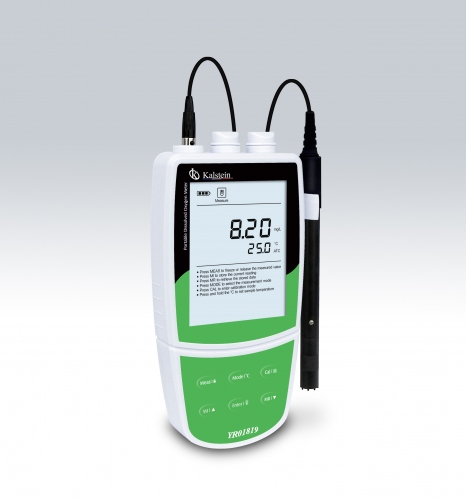Conductivity meters are used to measure the ability of a substance to conduct electricity. In general, these devices are used in laboratories and industry to measure the level of impurities in a solution. Conductivity meters can also be used to detect leaks in electrical conductors.
Conductivity meters are based on the principle that electricity flows through a conductor when a potential difference is applied to it. The magnitude of the current flowing through the conductor depends on the resistance of the conductor
Conductivity meters can be used to measure the amount of impurities in a solution. The strength of a solution increases as a function of the concentration of impurities in the solution. In this way, conductivity meters can be used to measure the purity of a solution.
Fundamental Principles
Conductivity meters are based on the principle that electricity flows through a conductor when a potential difference is applied to it. The magnitude of the current flowing through the conductor depends on the resistance of the conductor.
The ability of a substance to conduct electricity is measured in resistivity units and is defined as the resistance of a material to the electrical current. In general, the higher the resistivity of a substance, the less able it is to conduct electricity.
Conductivity meters can also be used to detect leaks in electrical conductors. Leakage occurs when the driver’s resistance decreases. This makes it easier for electrical current to flow through the conductor. They can detect leaks in electrical conductors by measuring the resistance of the conductor.
Conductivity meter operation
The operation of a conductivity meter is quite simple. Most electrodes have two electrodes that are immersed in the solution being measured. Once an electrical current is established between the two electrodes, the equipment measures the current flow through the solution. The conductivity is calculated from the current intensity and the resistance of the solution.
The concentration of ions in a solution is one of the main determinants of its conductivity. The higher the concentration, the higher the conductivity. It is also affected by the temperature of the solution and generally, the higher the temperature, the higher the conductivity.
Measurement of the conductivity of a solution is useful to determine its electrolyte concentration. This is especially useful in the case of solutions containing salts, such as sea water. Salts dissolve in water to form ions, which are charged particles that can conduct electricity.
In short, a conductivity meter is a measuring device used to measure the ability of a material to conduct electricity. It is mainly used in the laboratory to measure the concentration of electrolytes in a solution. The conductivity is expressed in Siemens units per meter (S/m) or microsiemens per centimeter (μS/cm).
Autoclave to Gas brand Kalstein
We at Kalstein offer you the Conductivity Meters and have advanced functions, where they belong to the YR series and have important features such as: Classic BenchTop Conductivity Meter, calibration of 1 to 3 points, the configuration menu contains 6 options. The meter is suitable for daily tests and checks, accuracy: 1% F.S. Range 0.01 to 20.00, 200.0, 2000 µS/cm, 20.00, 200.0 mS/cm. Resolution of 0.001, 0.01, 0.1, 1. Accuracy of ±1% full scale.
In addition, they have many other attractive features, which you can enjoy from HERE
We are manufacturers and we have the best advice, so that your purchase is ideal and at excellent prices. We invite you to take a look HERE

